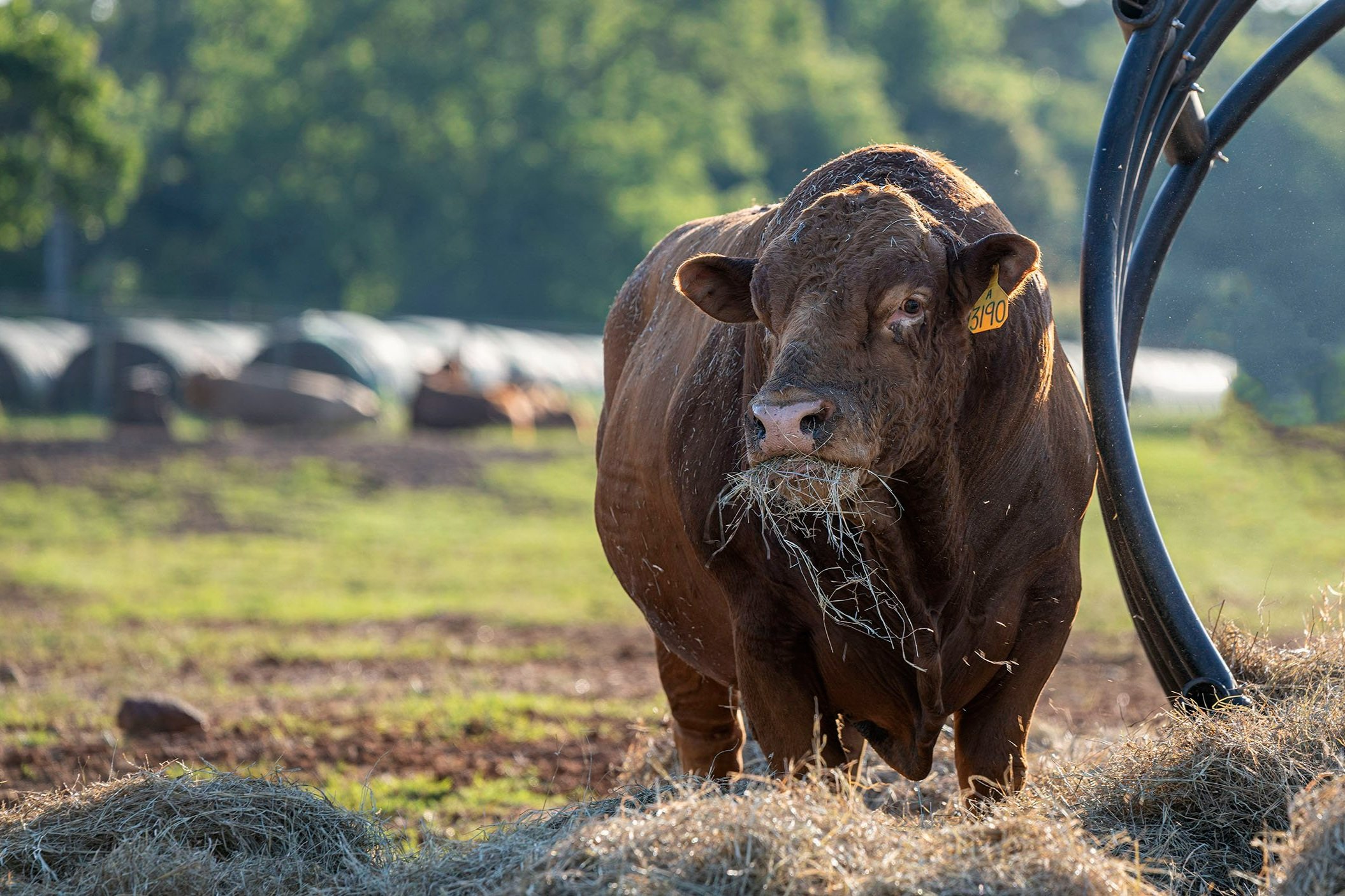The Importance of Bull Maintenance
One of the most critical components of your cow herd
You have sifted through stacks of sale catalogs, watched video after video online, nearly drove the wheels off your truck and finally found the bull you wanted. That bull is one of the most critical components of your cow herd. Without live calves on the ground, you’d be out of the cattle business. To ensure your calves and, in turn, your paychecks, are coming, it’s important to take good care of your bulls. Just as you change the oil, rotate your tires and on occasion flush the transmission on your truck to keep it on the road, you need to do regular bull maintenance to keep your bulls running the best they can in the pasture.
Health
Often when cows are worked for regular vaccinations and deworming, the bulls are left behind, and before you know it, it’s time to turn a bull out that hasn’t been vaccinated. As for your vaccination protocol, annual vaccines for infectious bovine rhinotracheitis (IBR), bovine viral diarrhea (BVD), parainfluenza 3 (PI-3), bovine respiratory syncytial virus (BRSV), leptosprosis (Lepto), vibriosis (Vibrio) and a biannual seven-way or eight-way clostridial are the norm. However, it’s of utmost importance to review your vaccination protocol with your veterinarian to make sure you have all the bases covered for your part of the country. Bulls should be vaccinated 60 days ahead of the breeding season. It takes time for immunity to develop after vaccination, and the age of the bull and vaccine can affect the amount of time. Any stressors or reactions from vaccines can compromise a bull’s sperm production. If a bull experiences a high fever, the sperm forming at the time he had a fever will be abnormal, which causes an infertile period about 60 days after the fever. Prevention rather than treatment is the most economical tactic to ensure good health and avoid losses. Treatment after the onset of a disease is not always effective and is often costly, and you risk losing a bull before diagnosis or treatment can even happen.
Breeding Soundness Exams
Breeding soundness exams (BSEs) are insurance for your breeding season. Often producers buy a bull that has passed a yearling BSE and then consider him good to go for years to come. BSEs should be performed annually by your veterinarian to ensure a successful breeding. There are many factors that affect fertility, like age, weather and nutrition, which can affect semen concentration, motility and morphology. Since fertility changes aren’t visible to the naked eye, without a breeding soundness exam it might be 283 days until you discover there was a problem. Other factors that are evaluated during a BSE are visible, like feet and leg structure, body condition, vision and general health. These factors are just as critical − a fertile bull that can’t get around the pasture to breed cows is no better than an infertile bull that’s sound as a cat.
Nutrition
Inadequate nutrition can be detrimental to fertility. You should monitor the condition of your bulls just as you do your cows. During the breeding season, a bull can lose 100-200 pounds, equivalent to one to two body condition scores. Off-season nutrition, when the bulls are not with the cows, and the growing period for young bulls are of utmost importance to ensure optimal fertility and performance. A young bull’s first breeding season can be hard on him, similar to that of a first-calf heifer raising her first calf. It is important for young bulls to get a little extra care to ensure that they are getting back to a body condition score of 6. A study by T.D. Rich at Oklahoma State University showed that if a young bull gets too thin, he will underperform in semen production for the rest of his life. After the breeding season, bulls generally need some attention to restore their body weight and body condition. The amount of body weight and body condition that needs to be replaced can be considerable, especially in young bulls. Bulls may need supplements depending on the quality and quantity of forage available. In addition, a good mineral program is essential to your nutrition management. Bulls need proper levels of trace minerals for good sperm production. Mineral programs can vary from ranch to ranch, but it’s important that you be familiar with local soil profiles, as they will provide clues to deficient minerals.
Exercise
Think of your bull as an athlete. Just because it’s the off-season doesn’t mean he can sit around, tearing up feed bunks, sleeping all day, eating everything he wants – and then when breeding season rolls around, he’ll just magically be back to his formidable self. Like any athlete, he’s got to stay in shape and condition so that he’s ready to get back in the game when it’s time and he has the endurance to do so. A fertile but fat and unathletic bull will not do you any good. In the off-season, whether your bulls are kept separately or as a group, they should be kept in pens or pastures with plenty of room to exercise. Encourage exercise by putting protein supplements or feed bunks far from the water source. It often pays to ensure that the bulls you turn out together are compatible ahead of time, so they aren’t spending all their time fighting when they should be breeding cows.

